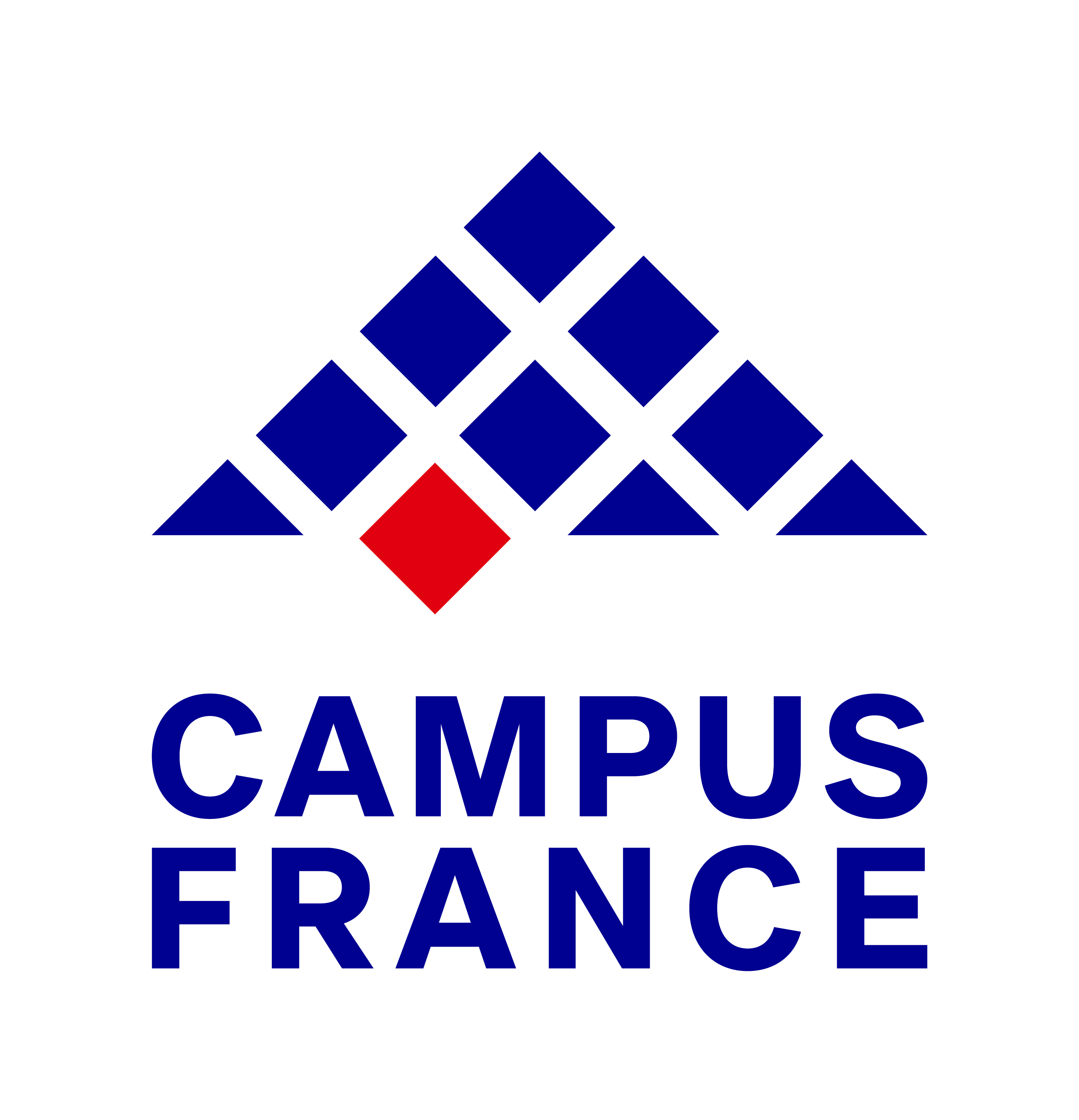International Welcome Desk
Visa
If you are an EU citizen, this process does not concern you.
Depending on your nationality, your situation and the length of your stay, you may need to obtain a visa/residence card (titre de séjour) to study or carry out research in France, and even to return here after you graduate.
Use the official website for your French visa application.
You will find all information you need on the website to prepare your stay in France.
For more detailed information about which documents you must submit and how to make an appointment, contact the French Consulate of your country of residence.
To find out more, click on the logos to be redirected to the pages in English with useful information.
Important: This process can take several months depending on the country, so it is imperative to start as soon as you receive your acceptance letter.
If you have a long-stay visa (known as VLS-TS), you need to validate your visa online once you have arrived in France. Click on the logo below to find out all the information you need (in French).
Health Insurance
- You are a citizen of an EU/EEA state: Apply for your European Health Insurance Card (EHIC) in your home country. It must cover the entire period of your studies in France.
- You are a citizen of a non-EU/EEA state: In preparation for your arrival in France for your studies, you must register for the Primary Health Insurance Fund (Caisse Primaire d'Assurance Maladie, CPAM) on the Assurance Maladie website. Click here to be redirected to a questionnaire to test your elegibility (in French).
To find out more, click on the following links to be redirected to pages in English.
The French Social Security Registration Process for foreign students
Information in English about Primary Health Insurance Funds
Financial Support
As an international student in France, you may be elegible for financial support.
For more information, contact your nearest Campus France office or the Cooperation and Cultural Action Department (Service de coopération et d'action culturelle) of the French embassy or the French consulate in your country of residence.
Below are a couple of links to help you with the process.
Scholarships for foreign students in France
Grant Search Engine classed by nationality (available in English)
Financial Support for International Students (in French)
Financial support and grants (in English) (Note: this page was last updated in 2020 and lacks a lot of information present on the French page)
Accommodation
Personalised support will be given to students on the International Master's degree programme to help them find accommodation in Angoulême.
Contact details of the person in charge will be available on this page in the lead up to the first cohort's entry in September 2026.
Home Insurance
Home insurance is mandatory for tenants. It enables you to receive compensation from your insurance company in the event of a claim in your home (fire, burglary, water damage, etc.).
You can find insurance companies that offer reasonably priced deals depending on the level of cover you wish to have. Some French banks even offer competitively priced insurance packages for young people.
French Bank Acccount
Remember to check whether your bank account and card can be used in France before leaving your country of residence.
If you do need to open a bank account in France, the process is fairly straight-forward and can be completed with all banks.
You will need the following three documents:
- Proof of ID (Passport, National ID card, etc.)
- Proof of address
- Certificate of enrolment (Certificate de scolarité) or student card
Also consider international online banks which are convenient for currency conversion and doing euro transfers without fees, features that French banks don’t always offer.
Mobile Phone
Before coming to France, check whether your home country's mobile phone package allows you to use your phone abroad (for calls, texts and cellular data) and most importantly, if it will cost you extra money. Some operators allow you to use your mobile phone abroad “within reason” but add high extra fees if you overuse it (whether it be data usage or sustained period of time).
If you cannot use your current mobile phone contract abroad, you can easily find a French operator to get a new number with a SIM card.
Most operators offer unlimited calls and texts as standard in their packages. Competitive prices are available depending on how much cellular data (Gb) you require. Look for contracts that say sans engagement (“without obligation”) - you can end this type of contract at any time without having to pay any fees.
Compare different operators' offers depending on your specific needs.
Buddy System
Coming soon.
Contact
Fantine Amiel
International Operations Assistant
fantine.amiel@lecnam.net
Useful Tips
Language preparation
How to prepare
Cultural preparation



















